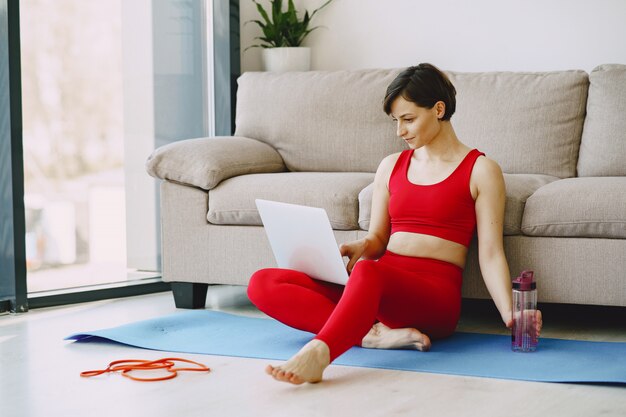
A study at North Carolina State University found that just one hour of physical exercise can boost GPA by 0.06 and increase the likelihood of graduating by 49%. Besides helping you maintain a healthy weight and lowering the risk of chronic diseases, exercise can also enhance your academic performance.
If you’re an online student, you might miss out on the routine physical activities that traditional students benefit from by walking around campus. So, it’s essential to make a plan and schedule exercise into your daily routine. The great news is you don’t need an expensive gym membership to lose weight, build strength, and improve flexibility. You can achieve a healthy lifestyle with an effective at-home yoga routine.
Everyone knows exercise is crucial for physical health, which is why online students should make an extra effort to stay active. Even low-intensity activities can increase your energy levels and combat fatigue. Long hours of studying without much movement can lead to tiredness for distance learners. Spending one to three hours a week doing yoga, aerobics, dancing, or any activity involving both the upper and lower body can help lower the risk of depression and heart disease.
Yoga specifically can improve conditioning, increase strength, stabilize your heart rate, and enhance cardiovascular functions. Online students often spend a lot of time in front of screens, studying slides, or watching movies during breaks, which isn’t ideal. Your eyes need a break from screen time, so taking a few minutes for yoga can help reduce eyestrain and prevent headaches from prolonged studying.
Exercise doesn’t just benefit physical health; it also boosts memory by increasing levels of dopamine, epinephrine, and proteins in the brain. These changes enhance problem-solving skills. Intensive exercises like jogging, brisk walking, and aerobics improve blood circulation to the brain, encouraging cell growth that’s crucial for learning. Just 20 minutes of exercise can sharpen your concentration in class.
Taking study breaks is critical for staying motivated and productive. While lounging on the couch might seem relaxing, it doesn’t boost productivity. Exercise is a great study break because it keeps you alert and energized by improving blood flow. It also helps release stress-related toxins that affect your brain and nervous system. High stress levels can lead to muscle tension, making you feel tired and sore. Simple stretching exercises can relax your muscles, helping you feel rejuvenated, more productive, and motivated for academic tasks.
Incorporating exercise into your daily routine is key to better academic performance, and you don’t need to spend a lot on a gym membership. With various DIY workouts and yoga positions, you can stay fit right at home. Simply invest in some basic equipment and set aside time for exercise.